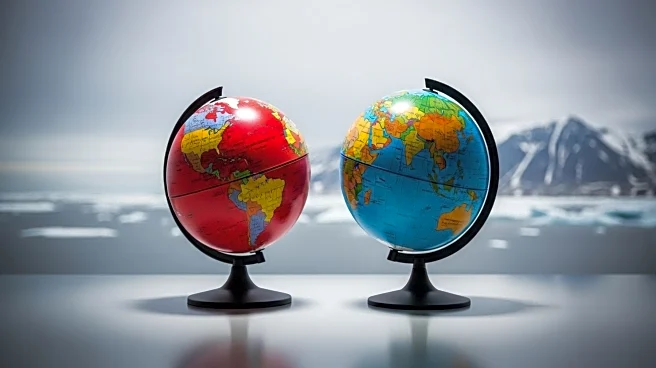What's Happening?
Russian President Vladimir Putin has indicated that discussions held during the recent summit with U.S. President Donald Trump in Alaska may lead to peace in Ukraine. Putin expressed optimism about the understandings reached during the summit, although no formal agreements have been publicly disclosed. The discussions are part of broader efforts involving strategic partners such as China and India, aimed at resolving the ongoing conflict in Ukraine. Putin shared these insights during a meeting of the Shanghai Cooperation Organization (SCO) in Tianjin, China, where he also briefed Chinese President Xi Jinping on the summit's outcomes.
Why It's Important?
The potential for peace in Ukraine is significant, as the conflict has had widespread geopolitical implications, affecting international relations and economic stability in the region. The involvement of major global players like the U.S., Russia, China, and India underscores the complexity and importance of diplomatic efforts in resolving the crisis. Successful negotiations could lead to reduced tensions and foster stability in Eastern Europe, benefiting global markets and international diplomacy. However, the lack of public agreements suggests that challenges remain in achieving a comprehensive peace settlement.
What's Next?
Further diplomatic engagements are expected as Putin plans to share more details of the Alaska summit with other leaders at the SCO meeting. The international community will likely monitor these developments closely, anticipating potential shifts in the geopolitical landscape. The Trump administration's consideration of new sanctions on Russia due to intensified strikes on Ukraine could also influence future negotiations and diplomatic strategies.
Beyond the Headlines
The discussions at the Alaska summit highlight the intricate balance of power and influence among global leaders in addressing international conflicts. The role of strategic partners like China and India in peace initiatives reflects a multipolar approach to diplomacy, which could redefine traditional alliances and power dynamics in global politics.










